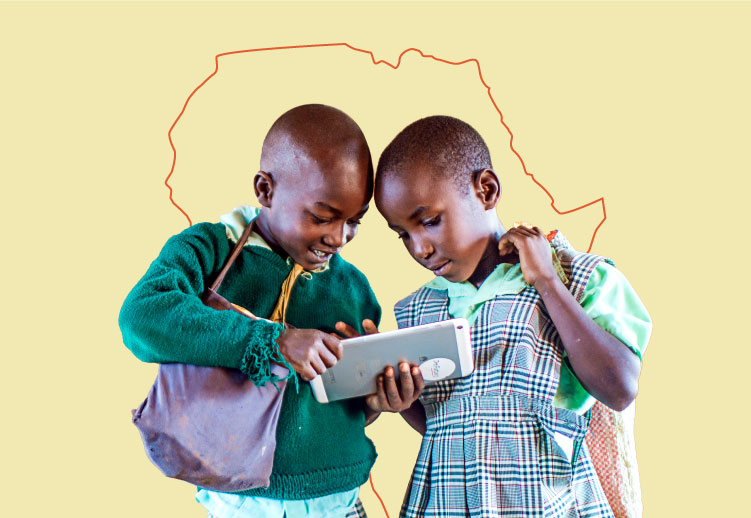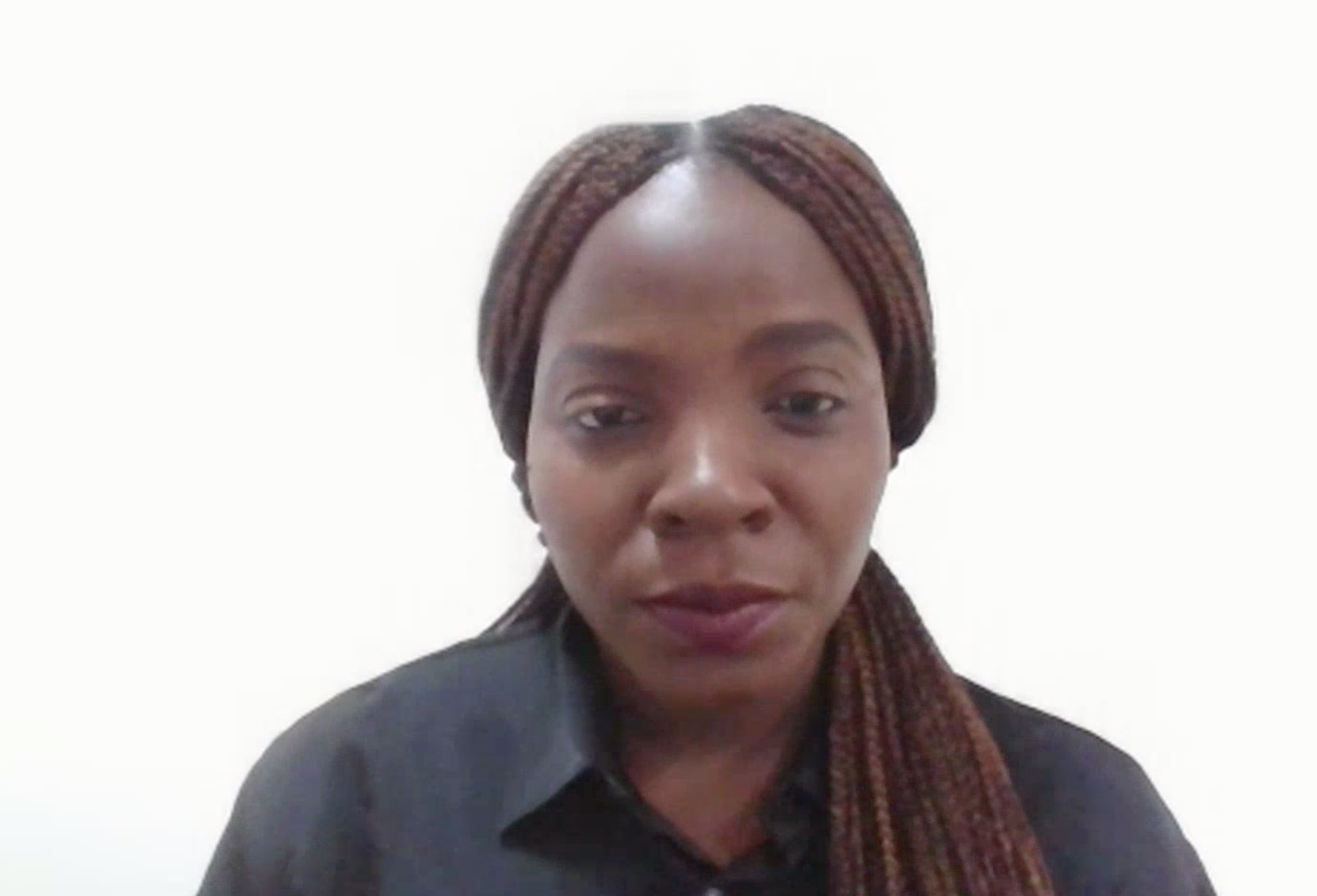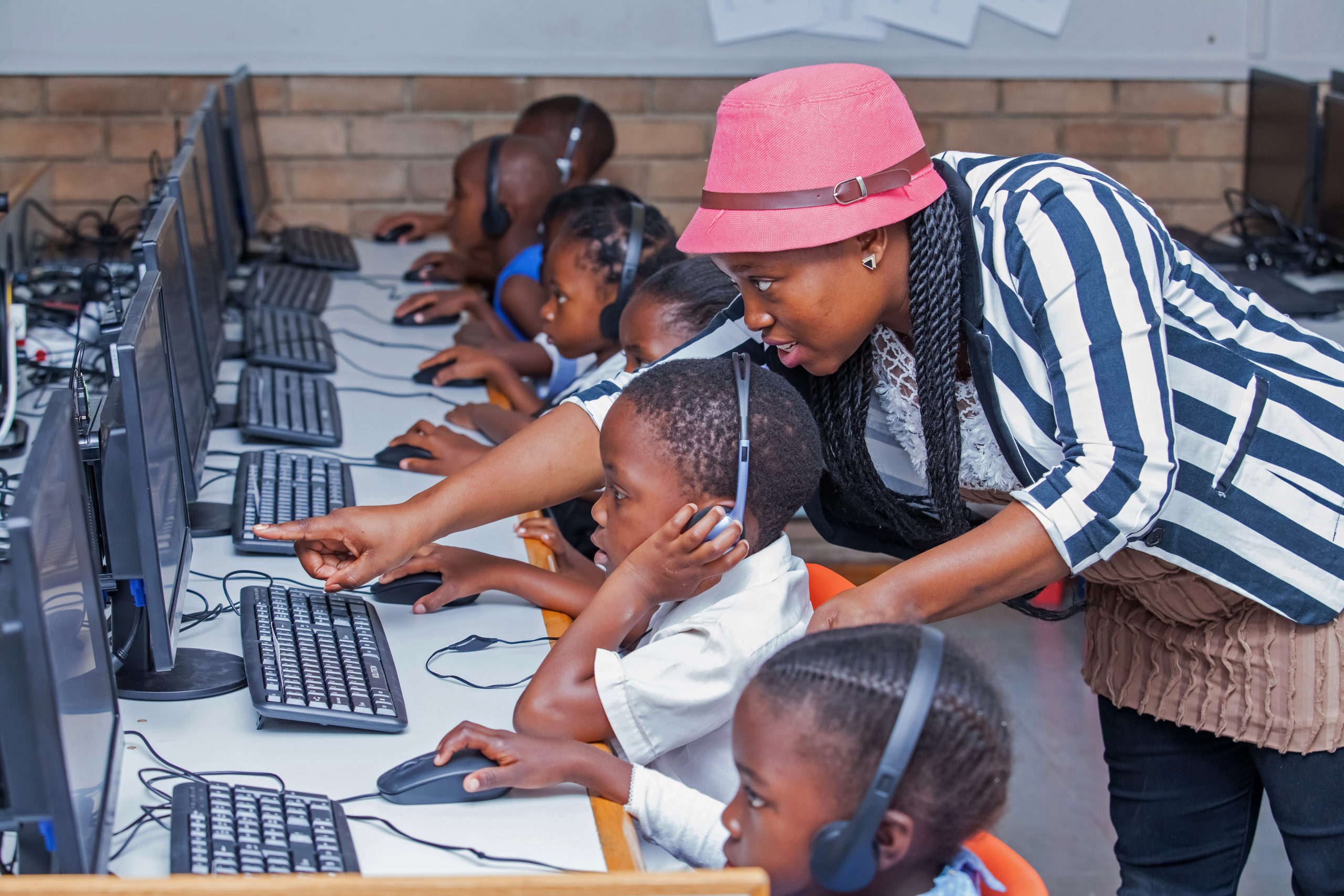In recent years, despite the many challenges they face, sub-Saharan African countries have made some significant progress in the field of education. For example, in terms of expanding the right to education, many countries have worked to increase enrolment and ensure that more children have access to education. As a result, the overall primary enrolment rate increased from 35% (2008) to 57% (2018), according to data from the UNESCO Institute for Statistics (UIS). From expanding access to education to improving the quality of teaching, African countries have been working hard to overcome barriers to educational development.
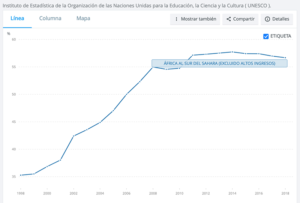
Overall elementary school enrollment rate. Source: UIS.
However, despite progress, education systems in sub-Saharan Africa face persistent challenges that require continued attention:
- Access to education. The region still has the largest out-of-school population in the world: one in five primary school-age children and well over half of upper secondary school-age adolescents do not attend school.
- The literacy rate in Africa remains low compared to other regions of the world. According to UNESCO, in 2019, the adult literacy rate in sub-Saharan Africa was 65.6 per cent.
- Quality of education. Attending school does not guarantee learning. To learn well, children need certain conditions, including safe environments, suitable infrastructure and quality teachers, among others. In sub-Saharan Africa, students are educated in poor school environments, where pupils are taught in a language they do not understand (according to UNESCO, about 80% are not taught in their mother tongue), and where basic teaching materials and suitable infrastructure are lacking. As a consequence, according to World Bank data, the number of children who cannot read and understand simple text in this region is around 89% (World Bank, 2022), although the quality of education varies considerably between countries, with significant differences between urban and rural areas.
In this Observatory, we have examined the state of education in Africa, its challenges and the progress made so far. We have also analysed some of the strategies implemented to ensure equitable access to education and innovative programmes that aim to improve the quality of education and prepare African students for the challenges of the future. We tell you about it in this article.
Despite progress in recent years, education systems in sub-Saharan Africa face persistent challenges that require continued attention.
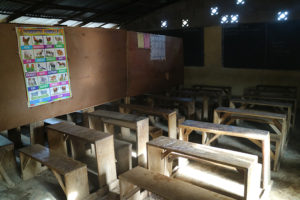
How to change the destiny of Africa through education
60% of the African population are now under the age of 25. This makes it the world’s youngest continent. By the end of the century, the young African population is expected to double the total population of Europe. Imagine what education could achieve on this continent with demographics that make youth its greatest resource. In this video, Folawe Omikunle, director of Teach for Nigeria, told us how technology and talent can help education make the quantum leap the region needs to transform itself and achieve its full economic, cultural and social potential.
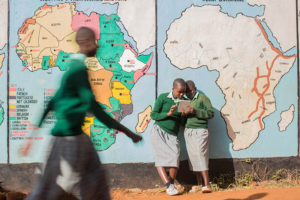
What if teachers lead the change in Africa?
Did you know that sub-Saharan Africa will need 17 million additional teachers if it is to achieve universal primary education? African teachers hold the future of an entire continent in their hands. However, the teaching profession in Africa faces major challenges that prevent it from being the engine of change that the region so desperately needs. In this article, we analyse these challenges and identify the keys to overcoming them.
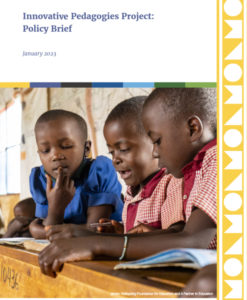
Innovative pedagogies in Africa: how to promote them
As mentioned above, children in the region are not learning what they need to: almost 87 per cent are unable to read and understand simple text by the age of 10 and, on average, the proportion of children who reach the minimum level of proficiency by the end of primary school is only 35 per cent in reading and 22 per cent in mathematics (UNICEF & African Union, 2021). The absenteeism data are also shocking: only one in three children complete primary school, 41 per cent complete junior high school and 23 per cent complete senior high school (UNICEF & African Union, 2021). Why does this happen? “Many children do not learn because the teaching they receive is not appealing or does not meet their needs”, the Education Commission explains. It is therefore essential to develop and implement inclusive, participatory pedagogies that meet the specific needs of all students. In this article, we explain what these pedagogies are and how they are being implemented in some sub-Saharan African countries.
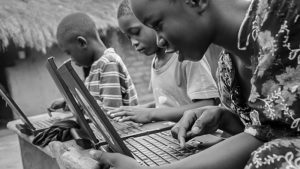
When digital education saves lives
As a young boy in his native Ghana, Ousman Umar thought that the colour of your skin determined what you could be in life; you were an engineer or pilot because you had white skin. Today, 25 years later, having survived a migratory experience that he describes as “hell on earth”, he knows all too well that this isn’t the case. “I didn’t think white people were engineers because of their white skin, it was because there was something called education, which was the basic key”. To ensure that no one else would have to go through what he did, he founded NASCO Feeding Minds, an organisation that provides computer and programming training for Ghanaian children and young people. This is his story.
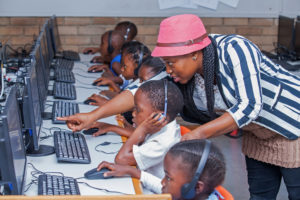
How Africa’s educational transformation is taking shape
Digital libraries, mobile applications, solar devices loaded with knowledge…well-implemented digital education in conjunction with the right levers (adequate infrastructure, teacher training, pedagogical innovation, access to reliable devices and Internet connection…) can play a crucial role in improving education in the sub-Saharan region by providing access to educational resources, facilitating teaching and learning, and helping to overcome geographic and socio-economic barriers. In this post, we tell you about some of the outstanding initiatives that are being implemented in this continent to contribute to improving children’s education through new technologies.



